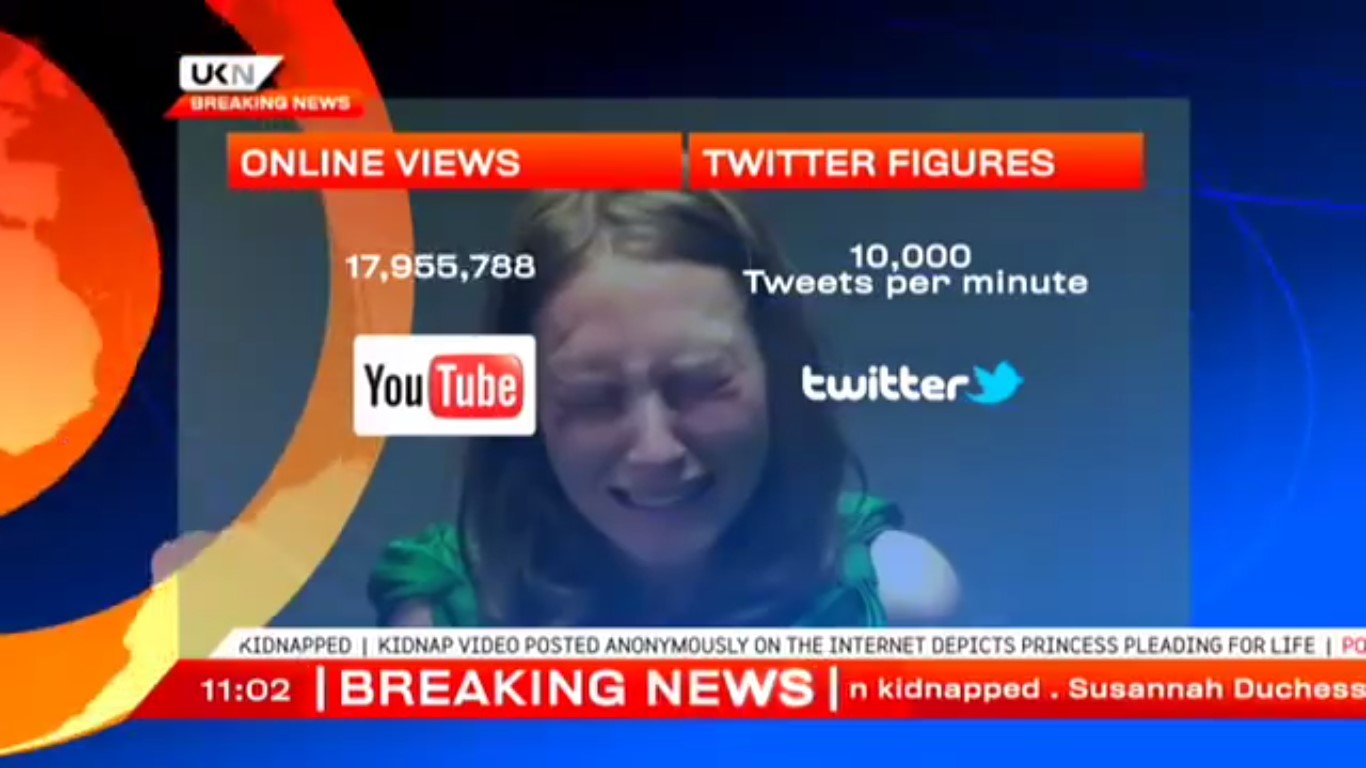
Black Mirror: “The National Anthem” (S01 E01), public opinion and the Internet
Public opinion and the Internet: a space for new traps?

By Ana Paula Varize Silveira and Sofia Saad Gonçalves
Freedom of speech and political participation, without a doubt, are democratic accomplishments that deserve to be protected and encouraged. And with the development of new technologies and the Internet and its increasing access and use by the population, the public opinion finds more and more space to manifest itself. More than that, its reach took such proportions that it has become impossible to be ignored by the main stakeholders of the political system — politicians, judges, and legislators — who are constantly influenced and, eventually, even coerced by it.
This is what happened in the popular dystopian series Black Mirror, currently produced and streamed by Netflix, in its polemic first episode “The National Anthem”. Set in a parallel London, the drama begins with the release of a YouTube video that announces that Princess Susannah, a member of the royal family very dear to the public, has just been kidnapped. The episode happens in a very short period of time. The video is posted in the very first hours of the morning and, in exchange for her freedom, only one demand is required to be fulfilled, rigorously, at 4 p.m. of that same day: the live transmission nationwide of Prime Minister Michael Callow having sexual relations with a pig.
The public opinion takes a leading role in this episode. During the day, television networks — to which becomes impossible to not transmit the development of the case as it was first demanded by the government — cover what has become a national event. The public is inquired about what would be the Prime Minister’s expected attitude, debates with specialists on the subject are promoted, manifestations on social networks are retransmitted, and so forth. Everything happens within the multilateral communication system that characterizes our days, observable thanks to the horizontal structure of the communication networks of the Internet.
Through it, the general public, usually a mere receptor of information broadcasted by the traditional media, becomes simultaneously a receptor and broadcaster of a multidirectional flow of messages, interacting with the content at the same time that it is being produced and, in this way, exercising an influence on the information that is transmitted in proportions that were never seen before.
For the Prime Minister, the consequence of this phenomenon was to have an extremely personal choice about his own life taken away from his hands. It is important to emphasize that this scenario is not so far from our reality, as much as it may initially seem.
In Brazil, during the last months, we have seen an agitated political situation whose tension is concentrated especially on the Lava Jato investigation. The following of its development happens practically in real time through the social networks and with a great involvement of the popular opinion, enabled by the same channels. It is not hard to find in any space of the Internet a common feeling of dissatisfaction with the Brazilian politics, quite generic and abstract. News websites, posts on social networks, critical columns, and the most diverse online communication channels serve all the time as a platform for the debate and the multilateral interaction of Internet users.
To exemplify how the consequences of this phenomenon can actually happen, we can observe how Judge Sérgio Moro, of the 13th Federal Criminal District of Curitiba, acts.
As a judge, the due impartiality and respect to the procedural guarantees of defense are expected from Moro. However, this was not seen in the trial of the former President Luiz Inácio Lula da Silva. In reality, what happened was a trial in which several illegalities were committed. To mention some: Lula’s compelled attendance, the authorization of wiretaps in conversations between Lula and Dilma Rousseff and the publicizing of its content, the refusal of the requests for expert evidence asked by the defense, among others.
It is like that “public outcry” for justice — if we can understand this as justice — had to be met at any cost. In this case, we do not intend to extrapolate the understanding that Moro was coerced to make all these decisions, but it is possible to attribute at least part of the responsibility to the way in which the public opinion has been placing itself in these virtual spaces in relation to the manifestations in favor of the punishment.
It is not hard to find other examples of cases in which the force of the public opinion, disseminated through the communication technologies generated problematic impacts — to say the least. The live streaming of the trial sessions of the STF and the STJ is a classic example of the coacting power of the public opinion, as the more political and less neutral posture adopted by the Justices is highly questionable, as they know that they are being attentively watched.
Here, we are not criticizing the transparency that should conduct public acts, but the practice of literally putting a camera in front of the judges, who will have every phrase and vote coldly analyzed and strongly criticized, only for its transmission and diffusion nationwide later — in a strikingly similar manner to a reality show. Would it be an overstatement to say that such exposure compromises the needed neutrality, impartiality, and exemption that judges should have?
Anyhow, it is clear that popular mobilization has power. In “The National Anthem”, the Prime Minister finds out that the decision-making powers are no longer in his hands when he receives the news that the public opinion is massively in favor of the proposal made by the kidnapper. In the real world, even if the decision-making powers of judges are still in their control, it is worth questioning: to what extent? Are their decisions really neutral, objective, and analytical, as it is demanded from the members of the Judiciary Branch?
The intention of this paper is to propose a reflection about to which extent the Law can be heard and influence judicial decisions, as it is happening nowadays, is necessarily positive to democracy. The mentioned cases, as do several others, show the frailty of our institutions before this new interface ever more present in our lives. It is not questionable that the public opinion is essential to the process of democratic construction and the public participation should be encouraged. But are our political institutions ready for this new interaction with the population?
The traditional structure of the three branches has been demonstrating weaknesses, and the partiality or influenceability of the Judiciary is only one of them. In this sense, how do we face the wider access to these channels that allow us to exercise such a direct and intense influence on the decision-making powers of our authorities within the democratic process? We live in a delicate moment in which we should look for ways to foster the development of our still immature democracy instead of allowing it to become weak. We do not want that it comes to ruin in its own foundations.